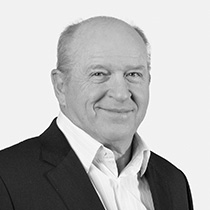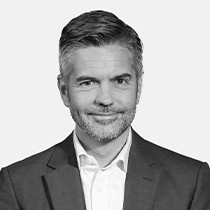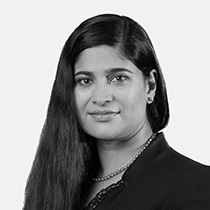2022 was a relentless year. Global markets had to navigate a land war, an inflation shock, unexpectedly steep monetary tightening, and heightened geopolitical tensions. All the while, economies were still emerging from or dealing with the Covid crisis. These events resulted in poor US dollar returns from most asset classes, with many struggling to beat inflation or deliver a positive performance. The MSCI All Country World Index came in with a negative 18.4% return for the year, the MSCI Emerging Markets Index was down 20.1% and the World Government Bond Index down 18.3%.
In South Africa (SA), investors fared slightly better, assisted by a 6.4% weakening of the rand against the US dollar. In rand terms, the domestic FTSE/JSE Capped Shareholder Weighted Index was up 4.4% for the year, followed closely by the FTSE/JSE All Bond Index (ALBI), up 4.3%. Listed property came in with marginally positive returns. Overall, no asset class delivered returns in excess of SA inflation, which is itself elevated at 7.1%, but below levels currently being experienced in most developed markets.
Against this backdrop, the Fund delivered a positive return of 0.8% for the year. While the Fund has achieved part of its primary mandate of protecting capital over 12 months, it did not manage to beat inflation or its inflation + 3% target for the past year. The Fund has delivered positive real returns over three, five and 10 years, and over the very long term. Since inception, the Fund has exceeded its target return.
The Fund’s allocation to global assets was the largest detractor from performance over the past year. Given expensive starting valuations for global equities and bonds, the Fund entered the year with a deliberately limited offshore exposure of 21%. The Fund also held put protection over a portion of its global equity allocation as a further risk mitigation tool. These actions could, however, only partly offset the negative performance of the Fund’s developed and emerging market equity selection.
Domestic assets have contributed positively to Fund performance over the past 12 months, with the exposure taken primarily through equities and bonds. Good equity and bond selection delivered returns ahead of their respective indices. Within domestic equities, defensive holdings in British American Tobacco; commodity holdings in Glencore, Exxaro and Anglo American; and domestic bank holdings (Nedbank, Standard Bank, FirstRand, and Absa) were the largest contributors to returns, while holdings in Quilter, Anglo Gold, MTN and Spar detracted.
Within domestic fixed income, the biggest contribution came from holdings in inflation-linked bonds. We continue to see real yields on offer from SA government bonds as attractive, notwithstanding the structural challenges faced by the domestic economy. Risk is managed by keeping the duration of the Fund’s bond carve-out lower than that of the ALBI but at a real yield that remains compelling.
We responded to the volatility we saw last year with the following key portfolio actions:
1) We increased our exposure to global equities where we saw more reasonable valuations. The more generous Regulation 28 offshore allowance also allowed us to broaden our selection away from SA listed global businesses into offshore-listed direct global peers. To this end, the Fund initiated the buying of Heineken, St James Place and a basket of US oil and gas counters as alternatives to (and at times in addition to) ABI, Quilter, and Sasol.
Heineken entered the Fund in the last quarter of the year as it had underperformed ABI. Like ABI, Heineken is a defensive beer company, but it has a more premium product mix and less exposure to the US market. We think the business will continue with its track record of respectable revenue growth, which together with an increased focus on cost control and productivity measures will deliver decent organic profit growth. Earnings are expected to compound strongly over the next five years as the business benefits from the aforementioned organic growth and synergies from its acquisition of Distell.
2) The Fund also bought select global corporate bonds where spreads expanded to very attractive levels. These exposures were mainly taken in corporates we know well and where we felt the balance sheet risk was very manageable. The combination of de-rating global bond markets and widening spreads allowed us to take advantage of a good yielding investment opportunity in this space.
The above actions have meant that our offshore allocation has increased to just under 30% by end of the year.
Looking forward, we expect the influence of some of the key drivers of markets in 2022 to continue into 2023.
- Although inflation remains elevated, a combination of loosening supply chains, lower energy prices and moderating household rents means that it is likely that inflation has peaked and will start rolling over. This implies that the interest rate response from central banks is nearing completion, although the timing of when a potential “pause” will happen and when that will turn to “pivot” remains uncertain.
- The key concern for the year ahead remains the growth outlook of key economies. Europe and the US will face a recession because of the adoption of more restrictive monetary policies. Emerging markets, however, are well placed to show relatively faster growth as they start to come out from a rate hiking cycle sooner than developed markets. China’s surprise emergence from stringent Covid lockdowns towards the end of the year means that their growth prospects have also brightened.
- Geopolitical risks will remain elevated as the war in Ukraine continues. This will impact investor positioning and sentiment, but the de-rating in global asset prices seen last year has resulted in more palatable starting valuations.
- An immediate impact of the war was felt last year through a spike in energy prices. Towards the end of the year, we saw these prices moderate due to warmer weather and the impact of demand destruction. We expect medium-term energy prices to be supported at relatively elevated levels as years of under-investment in oil and coal constrain growth in supply.
- Domestically, we continue to see muted economic growth as rapid deterioration in rail and power infrastructure present real headwinds to our industrial, retail and export businesses. Lack of adequate fixed investment spend and proper policy reform means that these problems will be difficult to address quickly. Low economic growth will impact the earnings power of domestic-facing businesses but also has implications for government’s ability to manage its debt burden.
The above list is not comprehensive and shows that many of the issues faced last year remain unresolved as we enter the new year. The Fund will continue to stick to its process of making asset allocation and instrument selection decisions based off valuations while being mindful of managing downside risks through diversification and purchasing protection. We continue to think a full equity allocation is appropriate, as we see significant value in our selection. A portion of our global and local equity remains under put protection. We have also balanced the risk asset exposure with a healthy fixed income allocation where we can still achieve attractive real yields.
While the past year was challenging to navigate, we have seen before that crisis periods throw out compelling investment opportunities. We have a proven investment philosophy and process that allows us to take advantage of these opportunities to generate long-term wealth for clients. We think the portfolio remains resilient despite a highly uncertain outlook and that the Fund is also well set up to deliver on its targeted returns for clients.
Disclaimer
SA retail readers
 South Africa - Personal
South Africa - Personal




